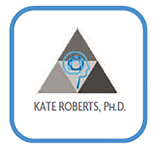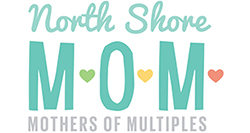 |
by Michael F. Mascolo, Ph.D.
What is your Achilles heel? According to the ancient Greek myth, the warrior Achilles was destined to die in battle. His mother, the Goddess Thetis, dipped him in the River Styx, which produced powers of invincibility. However, in order to dip Achilles into the river, she had to hold him by his heel. As a result, the heel was unprotected, and Achilles later died in battle from an arrow to his heel.
When we are vulnerable, we are open to being wounded. And so, in one sense, our vulnerable spot is our weak spot.
Interpersonal relationships are founded upon intimacy. To become intimate with another person, we must have the opportunity to come to know him or her. We also, however, must be open to having the other person know us. To be open to being known, of course, is to be vulnerable. It requires that we show our weak spots.
However, while our weak spots may make us vulnerable, the capacity to expose our vulnerability to someone else is no weakness. In fact, it is quite the opposite. It is a form of strength. It requires courage.
What is courage? When we think of someone who is courageous, we tend to think of someone who is fearless. Many of us tend to imagine a “brave” warrior going into battle without fear of the consequences.
It doesn’t take long to figure out, however, that someone who has no fear cannot be courageous! It takes no courage to act boldly if one genuinely has no fear! We can only call someone brave or courageous who acts in spite of fear. The courageous is not fearless; the person with courage is courageous because she faces her fear and perseveres through it.
Being vulnerable is scary. If I’m vulnerable to you — if I reveal my secrets, my insecurities, my fears and worries – I am open to being hurt. I am afraid.
Vulnerability and the Courage to Persevere
What would you like to do that you have not done before? What would you like to learn? To be? I want to start a new career. I want to lose weight. I want to improve my relationship with my partner. I want to learn a new language. I want to be a tight rope walker. I want to go back to college.
What stops us from doing these things? To be sure, practicality is usually the first obstacle. Jessica wants to go back to college, but she has two children and her husband just started an entry-level job. Terrance wants to start a new career, but he doesn’t have money for the training. Alicia wants to lean a new language, but her life is already so full that she simply cannot find the time. Logistics are often the first problem.
But the great obstacle is often the unstated one: fear. What happens if I fail? I will be humiliated and ashamed. I will have invested much with nothing to show. To put oneself out there – to say, I want this and I’m going to go after it – is difficult. I am exposed; I am vulnerable.
There are at least two antidotes to facing the fear of vulnerability. The first is knowledge. We need knowledge in order to figure out practical and logistical issues. What do I have to do in order to go back to college? Can I find a way to fund it? What will have to change in my life and in the life of my family in order to make this happen? We need knowledge to ensure that we are acting wisely and not foolishly. Is this relationship a safe one? Am I ready to open up and be vulnerable? What will happen if I tell my partner my true feelings? Will I be safe? Courage without knowledge is blind.
The second antidote to fear, of course, is courage. It takes courage to face the fear of failure and move through it. Once we decide to go back to college, it will take courage to act in the face of our fear that we may fail. It will also take courage to act in the face of the many small failures that will inevitably occur en route to ultimate success.
Which comes first? Knowledge or courage? Do we first figure out if our passions and desires are reasonable and then muster the courage to act? Certainly not! The mere thought of opening ourselves up to failure or hurt can be frightening. It takes courage to even contemplate exposing ourselves to failure. It takes courage to seek out the knowledge that we need to test the feasibility of contemplating a new life project. And so, courage and knowledge go hand in hand.
Cultivating Courage
So where do we get the courage to act? Where do we get the courage to conquer our fears?
There is no manual, no booklet, no set of instructions. We gain courage by resolving to act through our fears. The courage to be vulnerable comes from our decision to open ourselves up to the possibility of failure. Courage develops through action. The capacity for courageous action develops each time a person acts in the face of fear. Perseverance breeds courage.
This is true for both adults and children. It is possible and highly necessary to cultivate courage in children as well. Courage develops every time that a parent supports a doubtful child through her homework; encourages an insecure adolescent to ask for the date; pushes a child to persevere through those difficult piano lessons. Adults are generally in a better place to muster courage for themselves. However, we rarely if ever encounter novel challenges completely on our own. We often need others to support and en-courage us. Don’t be afraid to ask for help. No, that’s not true. Ask for help even if you are afraid to do so.

















